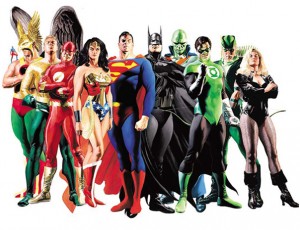 In a continuing series of dialogue, we at AutoMax Recruiting and Training, LLC wondered whether or not it is important to have a hero to admire. We questioned what makes a person a hero to others? Why care about accomplishments of others? What difference does it make to you?
In a continuing series of dialogue, we at AutoMax Recruiting and Training, LLC wondered whether or not it is important to have a hero to admire. We questioned what makes a person a hero to others? Why care about accomplishments of others? What difference does it make to you?
Spanning the duration of every industry, including the automotive industry, there are individuals who are leaders; who inspire, motivate and propel others to greater levels of achievement. Heroes come from all backgrounds and their contributions can be well documented. Take, for example, Robert Bosch, the eleventh of twelve children. During 1897, Bosch was the first to adapt a magneto to a vehicle engine. In doing so, he solved one of the greatest technical problems faced by the nascent automotive industry. The invention of the first commercially viable high-voltage spark plug as part of a magneto-based ignition system by Robert Bosch's engineer, Gottlob Honold, in 1902 greatly enhanced the development of the internal combustion engine. Bosch launched innovations for the motor vehicle, including diesel fuel injection in 1927. In only a few years' time, he succeeded in turning his company from a small automotive supplier into a multinational electronics group. Is he a hero? I would say yes! Not only did he personally develop a product of value from which nearly everyone has benefitted, but he also inspired others to take his idea and further improve upon it, and was a very successful businessman during the course of his life.
Granted, intentionally, the example is of a person of whom most people are unaware, as he passed away in 1942. Nonetheless, it brings to point that a hero can be anyone we want to consider a hero. We should all be inspired by the paths that others have paved bettering our industry. Right now today, there are men and women in our life, whether directly or indirectly, who are influencing the way we think and act. Are you a hero to someone else? Could you be? Does it make a difference?
Tell us who YOUR hero is, whether in or out of today’s automotive industry.

Jim Watson is my hero. Jim along with his partner, Frank,uncovered the source code for dna. With their information, we have been able to make incredible strides in terms of research into all major diseases. If you get a chance, and love dry reading, pick up a copy of the double helix. It is all about the thought process. Under the catagory, heros that we should know more about.
Bob; science, medicine and what the earth itself provides is fascinating. I’m not so sure I enjoy dry reading, haha, but I will take a scan at it.
Duane Brewer was my hero. Duane was a general sales manager that started me into sales management. I learned from him as a sales person how important patience was as a sales manager. He had the patience to assist the sales staff with a kind word and a mentoring attitude. He stopped short cutting and bending the sales process not with sarcasm but with patience and the ability to put therm on the correct path. I have used his example consistently over the last twenty five years. I wonder at times if the turn rates in some dealer ship sales staff would lessen if management education were brought to bear.
I believe you are correct, John. You were fortunate to follow the leadership of Duane and the result has been an enjoyable and successful career. Better initial and ongoing management skills education would benefit the sales staff, customers and dealership. I have written previously about how most other industries provide mentoring programs. I believe the retail auto sector on a dealership by dealership basis could and should do something similar.
My hero is Dr. W. Edwards Deming, PhD. He transformed the thinking of Don Petersen at the Ford Motor Company and transformed the entire Japanese automobile industry. Deming taught us that for Total Quality Management to succeed you must first transform management thinking. It starts with the respect for the human being and the understanding that we are born with intrinsic motivation, self-esteem, dignity, cooperation, curiosity, yeaning for learning. Today’s top performing managers now understand that intrinsic motivation, that comes from inside an individual, rather than motivation that comes from management is key in motivating people.
“This old style of Management … you cannot, any longer, get by with it … the responsibility for quality products and service lays at the top … your people are doing their best … putting in hard work without knowledge … there is no substitute for training and knowledge.” Dr. W. Edwards Deming, PhD.
Abe, thanks for sharing this example and contributing to the dialogue. Helping people get what they want can help get what you want is a simple way to say it. The thing is, I don’t know if people really take the time to know what they want as compared to simply living day to day with no real thought or plan. I believe the best managers take the time to learn their employees, even prod them to goal set for example, thus creating an environment of cooperation and work-wise, mutual goals.